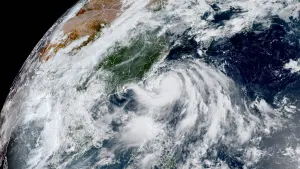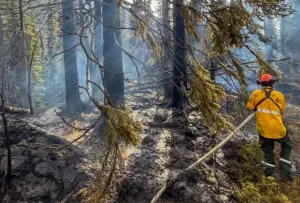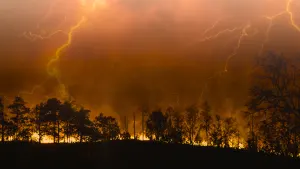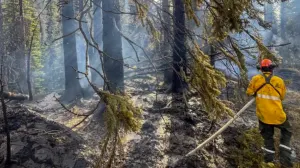
Weekend deluge in the Maritimes poses snowmelt risk, followed by flash freeze
Widespread rain across Atlantic Canada will lead to a risk for localized flooding and ponding. Beware the risk of a flash freeze following behind the rainfall
A fresh system tapping into abundant moisture over the East Coast will lead to plenty of drenching rains for the final weekend of February.
Halifax and many other communities across Nova Scotia remain surrounded by towering snowbanks from the bountiful storms we’ve seen in recent weeks.
Melting snow and heavy rains could lead to localized flooding and ponding in communities still looking like a winter wonderland.
The heavy rain will set the stage for a flash freeze, where significant ice is expected to form as a result of rapidly cooling temperatures.
MUST SEE: Atlantic ‘hurricane alley’ sees ominous mid-July heat in February
Persistent rain through Saturday
Rain that moved into the Maritimes on Friday isn’t going anywhere in a hurry. Warm, moist air surging into the region will reinforce this steady, soaking rain through Saturday afternoon.

Warmer temperatures and liquid rain is quite the change for folks around Halifax, which has experienced its snowiest February on record with a whopping 132.2 cm of snow at the airport through Wednesday, February 21.
In fact, this is Halifax’s first rainfall for the month of February—until now, all of the city’s precipitation has fallen as snow.

Across the Gulf, rain grow heavier into western Newfoundland Saturday afternoon and evening. Some higher elevations could briefly see freezing rain through Saturday morning. Light rain is expected through Gander and St. John’s overnight Saturday into Sunday morning.
Decent rain totals lead to flooding, ponding risk
The steepest rainfall totals from this system will fall across Nova Scotia and western Newfoundland.
Most of Nova Scotia will see 20+ mm of rain from this system. Folks from Halifax to Sydney can expect 30-50 mm of rain in the gauges by Saturday night, with 40-50 mm possible for some communities east of Halifax.
Widespread totals of 20-40 mm will fall across western Newfoundland, with locally higher totals possible near the Burgeo shores.
DON’T MISS: Earth just experienced its hottest 12 months in recorded history

While these rainfall totals are usually unimpressive, this much rain falling on Nova Scotia’s healthy snowpack will lead to a risk for localized flooding and ponding across the region.
Residents and businesses can reduce the risk for flooding and ponding by clearing storm drains of excess snow. Clearing snow away from foundations may help prevent trapped runoff from causing leaks. Remain mindful of the weight of water-logged snow on unsteady roofs, as well.
Flash freeze warnings issued
A cold front sweeping into the region from the west will arrive in the Maritimes through Saturday afternoon and evening, forcing temperatures to fall in a hurry through Saturday night.
ECCC (Environment and Climate Change Canada) has issued a rare flash freeze warning for much of Nova Scotia through Saturday evening. Air temperatures will drop into the minus teens across the Maritimes, leading to a hard freeze of any standing water from rain and snowmelt.
This will make sidewalks, driveways, parking lots, and untreated roads exceptionally slick into Sunday and Monday. Be prepared to adjust your plans to the changing road conditions.
Check back for all the latest on your forecast across Atlantic Canada.










